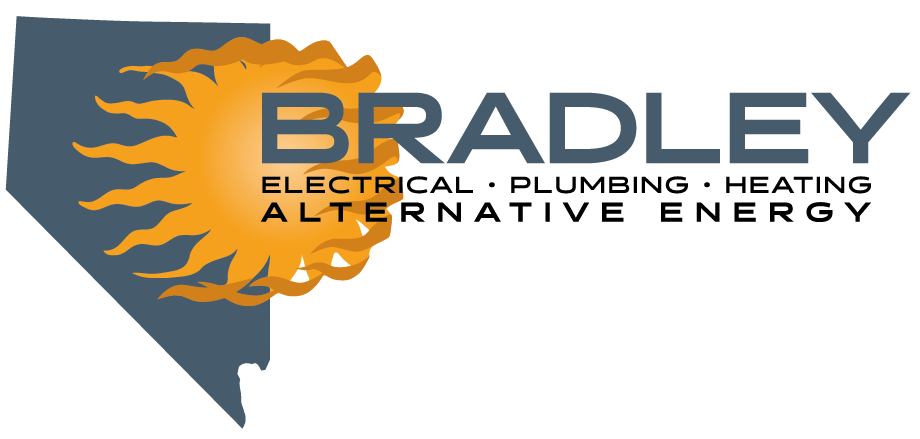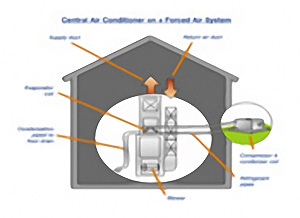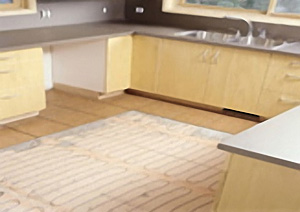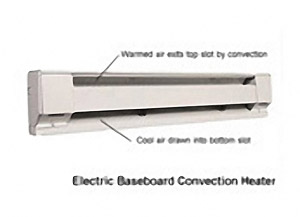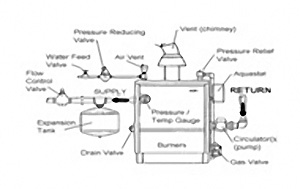Your home may have one of several types of heating systems. They can range from blowing hot air through ductwork to piping hot water through your floor. Whatever type of heating system you have, it will have advantages and disadvantages. It’s worth a quick review of the most popular types of home heating systems, how they work and their pros and cons.
We offer installation, service, repair and replacement for all heating systems.
Forced Air
Central forced-air heating systems are by far the most popular method of heating homes in North America, no doubt because they can deliver heated air from a central furnace or heat pump to every room of the house and because it can double-up for delivery of air-conditioned air.
Radiant
This system is known to provide the most natural and comfortable heat in a home. It is most commonly provided via hot water tubing embedded in the floor or directly below the floor surface heated by a boiler.
Hydronic
Similar to radiant heat, this system uses hot water heated by a boiler to heat a space by a combination of radiation and convection. Water is piped to “fin-tube” baseboard units mounted along walls. The fins increase the surface area of heat dissipation, making the unit more efficient.
Boiler
A boiler is the heating plant used to create hot water or steam for hydronic baseboard, radiant heat or steam radiator heating systems. Boilers can use a variety of fuels including natural gas, propane, oil or electricity. Hot water boilers can be small, compact, energy efficient and low maintenance.
